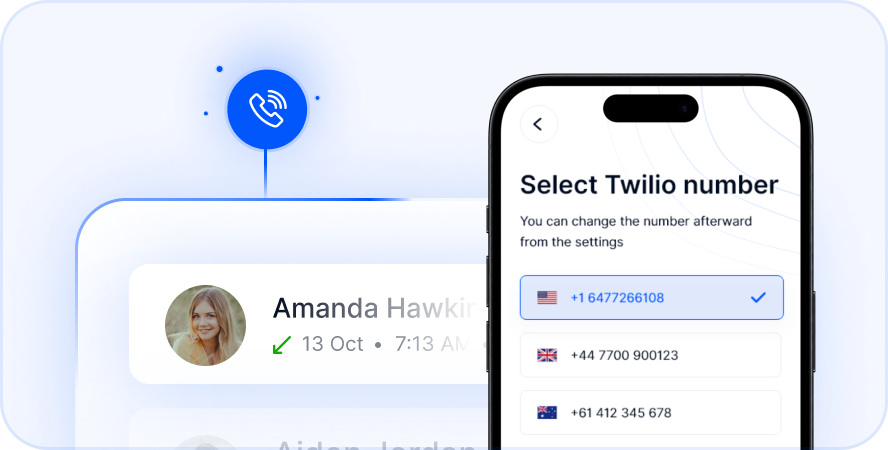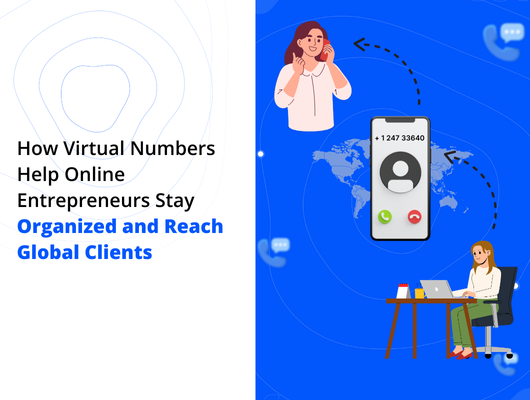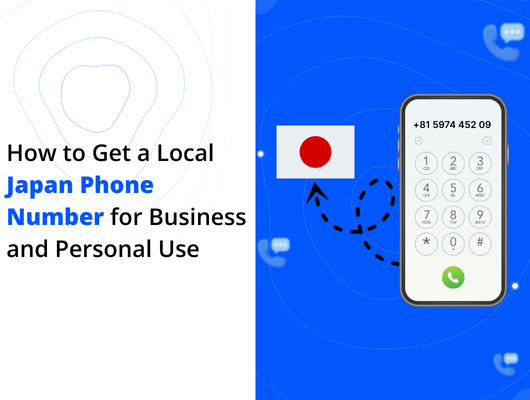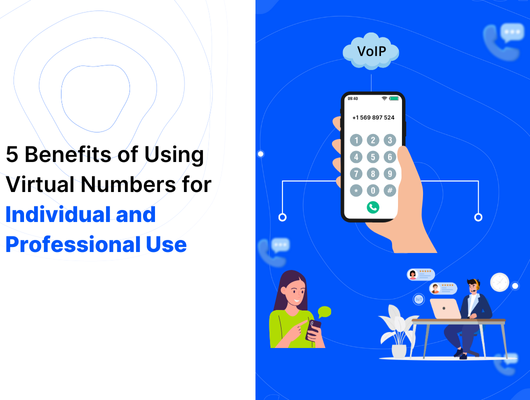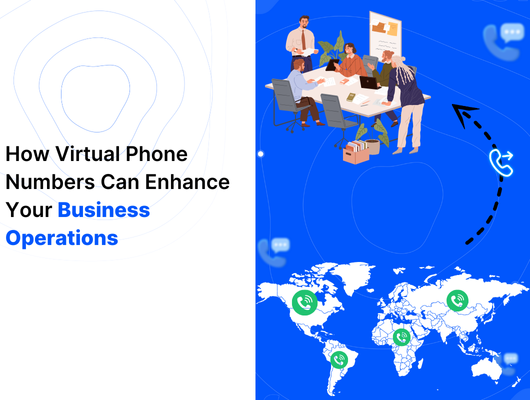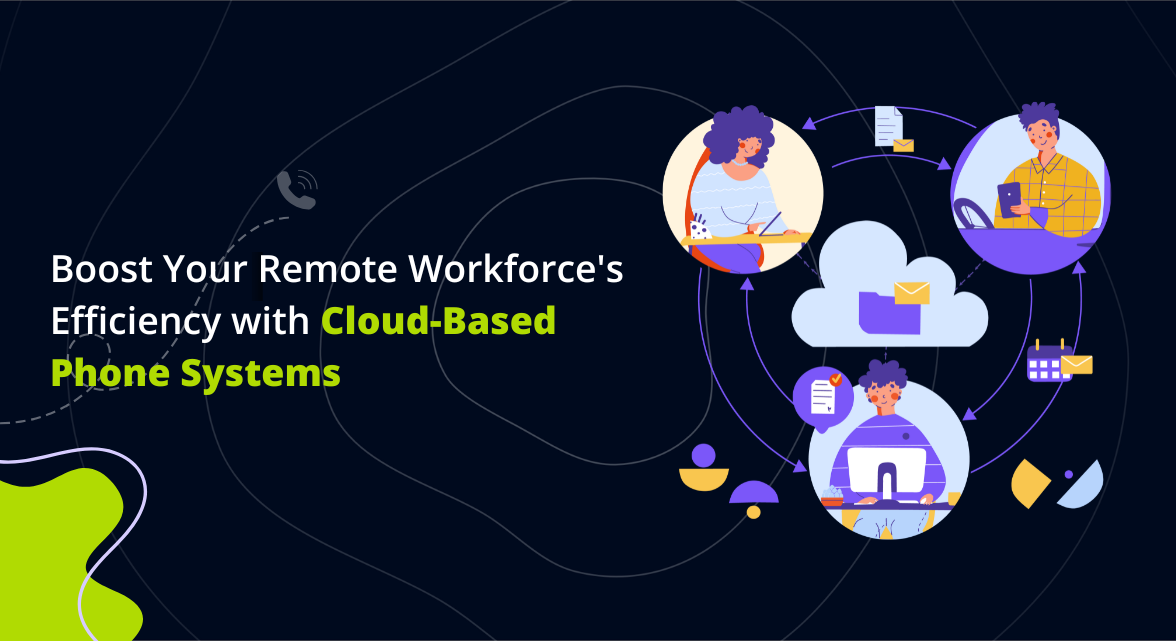
The way businesses work has changed significantly. Many teams now work remotely. This shift has deeply impacted how employees communicate. Companies need to adapt to this distributed workforce. Traditional phone systems often feel outdated for this new setup. Cloud-based phone systems are different. They offer flexibility and reliability. Businesses need these features. This ensures communication runs smoothly. It works no matter where employees are located.
Cloud phone systems are essential today. They help remote teams stay connected. They boost efficiency. Using the right cloud communication solution is key. It gives businesses an important edge. This applies whether you are a small business or a large company. It helps you compete effectively in today’s market. You can learn more about remote work trends and statistics here:(Read More)
What is a Cloud-Based Phone System?
A cloud-based phone system is a modern communication platform. It operates over the internet. It does not use traditional phone lines. These systems use Voice over Internet Protocol (VoIP) technology. VoIP lets you make calls using your internet connection.
Calls, messages, and other communications run through cloud infrastructure. This means no physical hardware is needed on your premises. Businesses do not worry about maintaining costly equipment. Managing outdated on-site systems is no longer an issue. Everything is managed remotely. This setup is perfect for businesses. It suits those with employees working from home. It is also great for companies with multiple office locations.
Core Benefits of Cloud Phones for Remote Work
Remote work is more than a trend. It is becoming a standard way of working for many. Businesses need tools to keep remote teams connected. Cloud-based phone systems are a powerful tool. They offer many advantages. These benefits directly support a productive remote workforce.
Seamless Connectivity, Anywhere
Remote teams are often spread out. They work in different locations. They might even be in various time zones. Staying easily connected can be challenging. Cloud-based phone systems solve this problem. Employees can make and receive calls from anywhere. They can also send messages. Voicemail is accessible remotely too.
These systems are not tied to one office building. Your team stays in touch effortlessly. It works whether they are at home or traveling. They can use desk phones connected via the internet. They can also use softphone apps on computers. Mobile apps turn smartphones into business lines. This flexibility ensures constant availability.
Significant Cost Savings
Traditional phone systems can be very expensive. This is especially true for businesses with distributed teams. There are costs for hardware purchase. You also pay for installation and maintenance. Upgrades add more expense. Cloud-based phone systems use a subscription model instead.
You typically pay a monthly or annual fee. You only pay for the features and users you need. This makes costs predictable. Additionally, international calls are often cheaper. They cost less than traditional landlines. This helps businesses expand globally. High phone bills are less of a concern. Overall operating costs for communication are reduced.
Global Reach with Virtual Numbers
A key feature is flexible number management. Cloud-based systems let you use virtual phone numbers. These numbers are not linked to a physical location. This is very helpful for international business. You can get local virtual numbers in different countries.
Clients in other regions can call a local number. They avoid international calling charges. This makes it easier for them to reach you. It also gives your business a local presence abroad. This builds trust with international clients. It makes your business feel more accessible.
Efficient Call Handling
Handling calls well is vital. Cloud systems offer smart call management features. Voicemail and call forwarding are easy to set up. If an employee is busy or unavailable, calls can be routed. They can go to another team member automatically.
Voicemail can be sent directly to email or SMS. This ensures messages are not missed. Employees get voicemails instantly. They can check them from any device. Features like interactive voice response (IVR) menus can also route calls. They guide callers to the right department or person. This improves efficiency and customer experience.
Enhanced Team Collaboration
Cloud-based phone systems often include collaboration tools. These are built into the platform. Examples include call recording. Team conferencing features are common. Instant messaging and presence status are often included.
These tools boost collaboration among remote teams. Teams can hold virtual meetings easily. They can track discussions with call recordings. Quick questions can be sent via chat. Knowing if a colleague is available helps too. Integration with tools like Google Workspace or Microsoft Teams is often possible. This further streamlines communication workflows.
Improved Customer Service
Connecting teams easily helps customer service. When employees access communication tools from anywhere, service gets better. They can use any device they choose. Handling customer questions becomes faster. Providing support is more efficient. Closing sales is easier too.
Cloud systems ensure your team stays available. They can respond quickly to customer needs. They have the right tools at their fingertips. This leads to happier customers. It builds a positive brand image. Quick and reliable communication is key to good service.
Increased Employee Productivity
Remote employees need tools that empower them. Cloud phone systems increase productivity. They remove limits of a physical office phone. Features like call forwarding prevent interruptions. Instant messaging allows quick questions. Setting up conference calls is fast.
Employees spend less time managing complex phone systems. They spend more time focusing on their core tasks. Easy access to communication tools simplifies their workday. This efficiency boost benefits the entire business. Productive employees contribute more value.
Effortless Business Scalability
Businesses grow and change. Your communication tools must grow with you. Cloud-based phone systems are built for scalability. You can easily add new users as your team expands. Adding more phone numbers is simple. New features can be activated quickly.
This scalability makes cloud systems ideal for growing businesses. They adapt to your needs without expensive hardware changes. You avoid buying excess capacity upfront. You simply scale your plan up or down as needed. This flexibility is a major advantage.
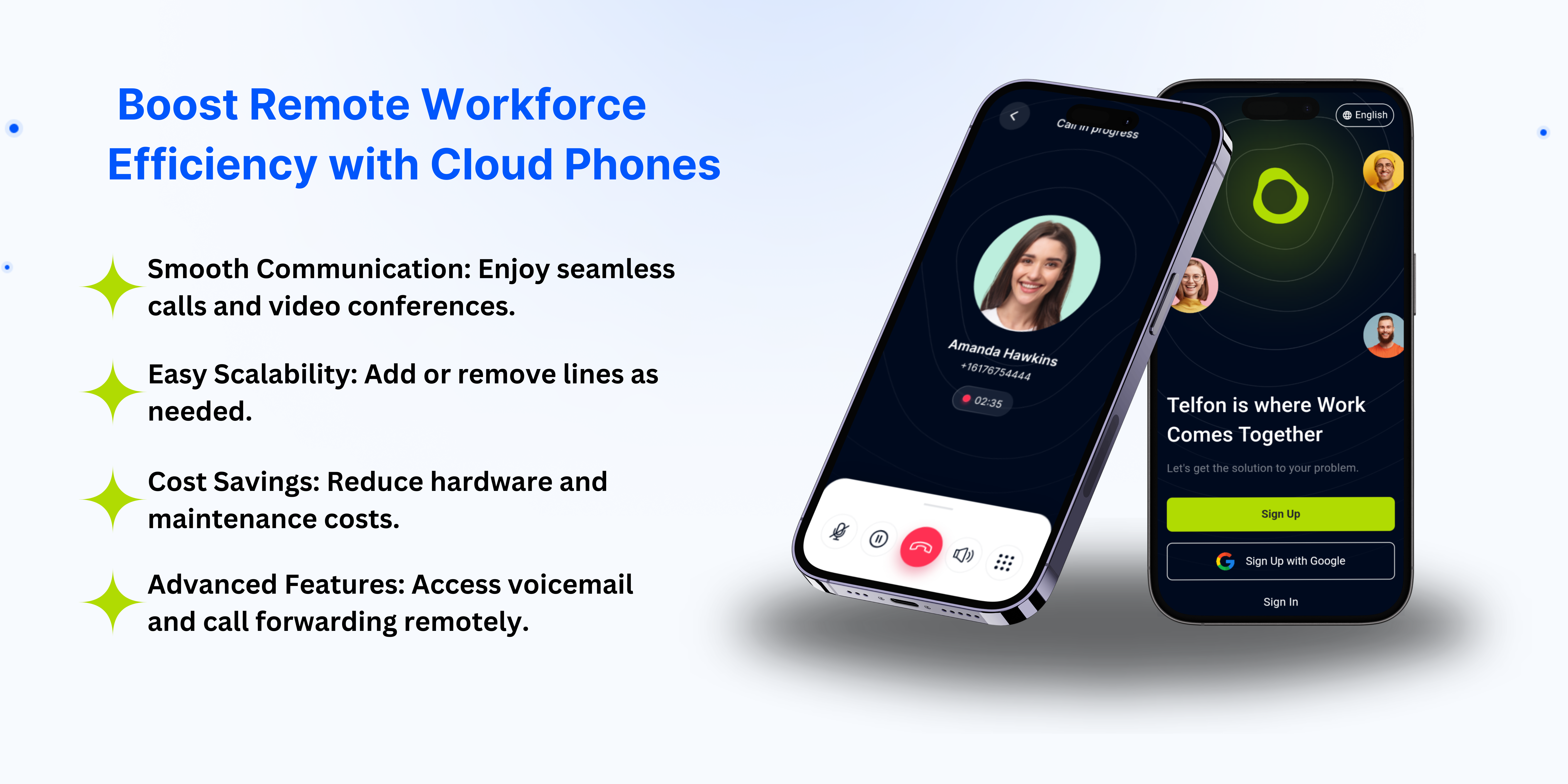
Why Choose Telfon for Your Remote Team?
Finding the right cloud phone solution matters. Telfon offers a reliable and affordable platform. It includes features designed for modern businesses. Both B2B and B2C companies can benefit. Telfon’s platform supports remote work effectively.
You can manage communications from one central dashboard. Making international calls is easy and cost-effective. Purchasing virtual phone numbers is simple. This helps you establish a local presence anywhere.
Core Features for Remote Success
- Global Calling: Make affordable international calls. Reach teams and clients in over 180 countries.
- Virtual Phone Numbers: Get numbers for different countries. Maintain a local presence easily.
- Messaging: Send and receive SMS messages. Broadcast messages to groups. Integrate multiple WhatsApp accounts for business communication.
- Call Handling: Record calls for quality or training. Set up voicemail for missed calls. Forward calls automatically to colleagues.
- Flexible Numbers: Use virtual numbers for multiple countries at the same time.
- Voicemail-to-Text: Get voicemails transcribed into text. Check messages quickly without listening.
- Bulk SMS: Send messages to many contacts efficiently.
Benefits for Business Plans
Telfon’s business plans add more power. These features help managers oversee remote teams. They provide valuable insights.
- User Analytics: View call and message data. Understand team activity with cards, graphs, and charts.
- Management Tools: Manage phone numbers and users centrally. Assign communication budgets per user.
- History & Alerts: Access detailed call and SMS history per user. Set up alerts for important events.
- Advanced Customization: Implement custom messaging services. Block unwanted numbers. Generate call number widgets for websites.
Telfon serves over 30,000 users globally. More than 600 companies trust Telfon. They offer pay-as-you-go pricing plans. You can save significantly compared to other providers. Telfon is available for individuals and businesses alike. Find it on Google Play, the App Store, and the Chrome Web Store. Its platform is user-friendly and supports over 20 languages.
Getting Started is Simple
- Choose a Plan: Visit a cloud phone provider’s website. Select a plan that fits your business size and needs. Consider features important for remote work.
- Set Up Your Account: Complete the registration. Configure your selected phone numbers. Set up user accounts. Define call routing rules and voicemail settings.
- Install Necessary Apps: Download the provider’s apps. Get them for desktop computers and mobile devices. This allows team members to connect from anywhere.
- Start Communicating: Log in to your account or apps. Begin making and receiving calls. Send messages. Use collaboration features. Your remote team is now connected.
Adopting a cloud-based phone system prepares your business for the future. It ensures your remote teams remain productive. They stay connected no matter their location.
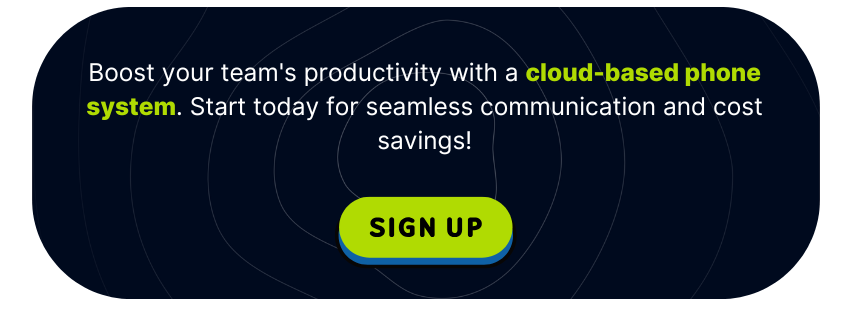
Frequently Asked Questions
Here are some common questions about cloud phone systems for remote work.
Q1. What equipment do I need for a cloud phone system?
You typically only need devices like computers or smartphones, along with a reliable internet connection. While you might choose to use VoIP desk phones, softphone apps on your existing devices are usually sufficient.
Q2. How does VoIP work for remote teams?
VoIP converts voice calls into digital data. This data is sent over the internet. Remote team members use apps or web interfaces. They connect to the cloud system online. This lets them make/receive calls using their internet link instead of traditional phone lines.
Q3. Is a cloud phone system secure for remote workers?
Yes, reputable cloud providers offer strong security measures. These include data encryption and secure login methods like multi-factor authentication. They often have dedicated security experts. This helps protect your communications.
Q4. Can I use my existing phone number?
In most cases, yes. Many cloud phone providers let you transfer or “port” your existing business phone numbers to their cloud platform. This avoids needing to change your main contact number.
Q5. How much does a cloud phone system cost?
Costs vary depending on the provider and plan. Pricing is usually subscription-based per user per month. This often includes a set of features. Pay-as-you-go rates may apply for calls outside the plan. It is often more cost-effective than traditional systems.
Conclusion
Cloud-based phone systems are vital for businesses today. They are especially necessary with the rise of remote work. Having a flexible and reliable communication system is crucial. It helps maintain productivity levels. It significantly improves team collaboration.
Using cloud phone systems offers clear advantages. They are cost-effective solutions, providing excellent scalability. Additionally, these systems include strong security features. These systems effectively support growing remote teams.
Whether you run a small startup or a global enterprise, solutions like Telfon can help. They enable you to stay connected with everyone. This includes clients, partners, and employees worldwide. Embrace cloud-based communication today. Unlock greater efficiency for your remote team.



